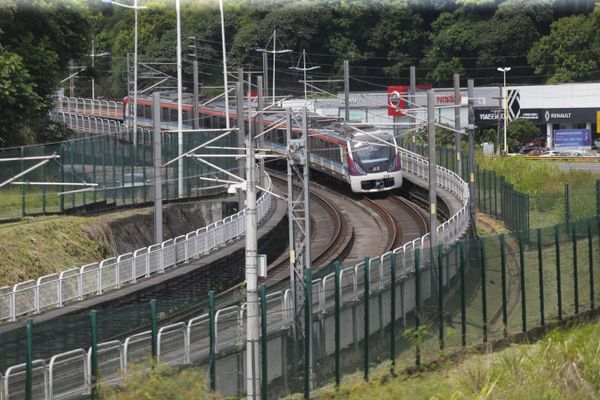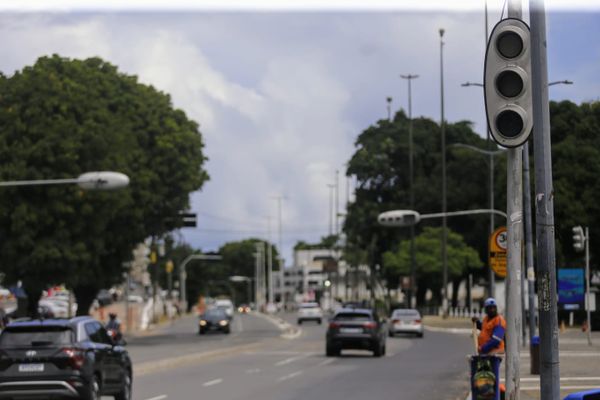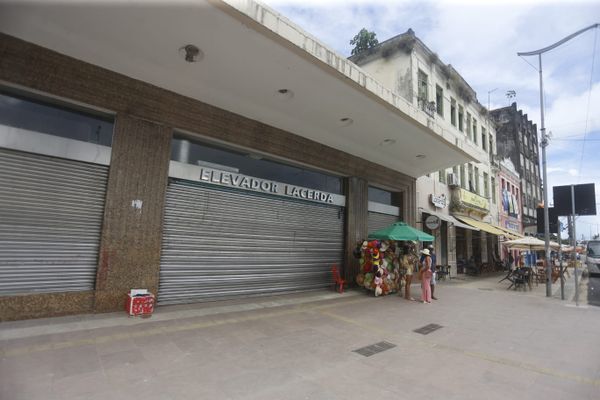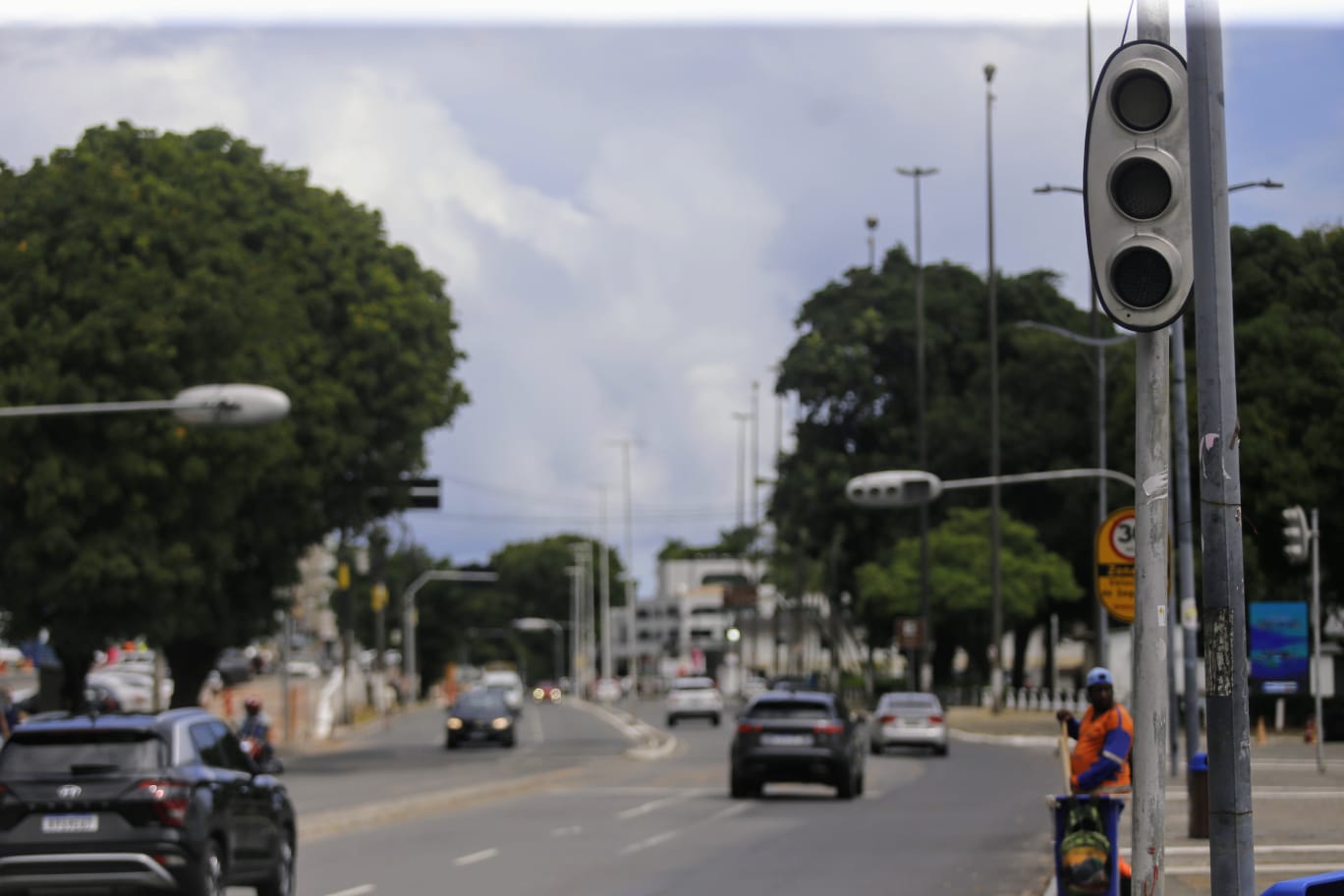Delay for work, crowded buses and stops, unscheduled appointments and difficulty ordering a car through apps. If you had to leave your house on Tuesday morning (14), in Salvador, chances are you’ve faced at least one of these situations. The electricity blackout, that affected the five regions of Brazil and all the municipalities of Bahiagenerated chaos and inconvenience for those traveling through the capital of Bahia.
Metro passengers were surprised by the suspension of service around 8:30 am. Those inside the wagons had to walk along the tracks until they reached the platforms. But before the system was completely stopped, it presented signs that there were problems. “The train slowed down and stopped at least three times from Lapa to the North Access. No one understood anything, it was desperate,” said nursing technician Linaete Monteiro, 52.
Some wagons did not reach the platforms and were stopped in the middle of the tracks. At 5:17 pm, Line 2, which goes from the North Access to Lauro de Freitas, started working again, according to CCR Metrô Bahia. Service was only fully restored at 5:46 pm, more than nine hours after the outage. The delay was due to repairs to the system after the sudden shutdown, explained the dealership. While the ticketing system was not yet standardized, passengers did not have to pay for tickets.
With no subway, buses became an alternative for most. A crowd left towards the points and there was turmoil, especially from Avenida Paralela. The buses were crowded due to the ripple effect. Vitor Andrade, 21 years old, lives in São Rafael and takes a few minutes from Pituaçu Station to work, at Shopping Paralela. On Tuesday morning, however, he had to resort to the bus. “I always take the subway, but today there was no way”, he complained.
Jeferson Alcantara, 21, was also waiting for a bus around 10 am, this time at CAB Station. When he left Subúrbio Ferroviário in the early hours of the morning, the student had no idea of the inconvenience he would face throughout the day. He found out about the blackout as soon as he arrived at the college, located on Av. Paralela. The teacher suspended classes due to the lack of energy.
The student is part of the group of people who, without the subway, faced a longer journey to reach their destination. On a normal day, Jeferson takes two hours to commute between home and college, but with the blackout, he had no idea when he would be able to return to Subúrbio. “I got a ride to the station and I’ll have to take three buses as the metro doesn’t work,” he said.

Judith Monteiro, 79, was in Comércio when she heard about the power outage. She had an appointment scheduled, but, afraid of the impacts of the power outage, she decided to return home, to Cajazeiras VII. “I was scared to death because the violence nowadays is too much, imagine without light what could happen”, she said. While she was waiting for the second bus to go home, at Pirajá Station, she talked to the reporter. “This blackout left everything in chaos. The bus was packed, there wasn’t even a place to put your foot down, ”she complained.
At each station, there was no lack of people to face the gate waiting for the return. In Brotas, Fátima Silva, 45, waited for an hour before giving up taking the metro to Pirajá. “I’m going to go back home and see how I can solve it at work. From here, I can’t do anything and, if there’s no energy, as they say, I wouldn’t be able to work there either”, says she, who is a receptionist.
Fátima even questioned employees of CCR Metrô, which operates the modal, because she saw lights on inside the station. “From here you can see the kiosk with energy and the lights on inside. So, why is there no subway? I asked the girl and she replied that there is not enough energy to support everything to return to normal”, she says.
In a note, CCR Metrô Bahia informed that the accesses to the stations would be closed until the reestablishment of the electric power, which had not happened until 17:00. “All customers who were at the Stations were instructed to evacuate the platforms at the time of the occurrence, as well as those who were inside the wagons, who were safely taken to the nearest platforms”, he points out.
Transalvador performs special operation after traffic lights stop working
The lack of energy brought a big problem in the streets of the capital. Traffic lights stopped working in all neighborhoods and traffic agents started a special operation. Transalvador reported that employees were spread out on the main roads and intersections of the city, but did not detail which points were or how many traffic lights stopped working. Around 11 am, when the power supply began to be resumed, the operation was gradually resumed. At 4 pm, all equipment was back to normal, according to Transalvador.
Gilson Bôuças, Transalvador’s supervisor, explained that the work carried out by the agents during the morning focused on the busiest intersections in the city, such as in the vicinity of Praça Dr. João Mangabeira, in Barris. “The big concern is intersections, so we channel the roads with plastic prisms to avoid accidents,” he said. Traffic channeling is a complementary signaling system, which indicates the directions to be followed by drivers.

At least one accident was recorded during the blackout, in Baixa dos Sapateiros, close to the Fire Department. The collision between a car and a collective bus happened at 11:15 am and left one person injured. The victim was rescued by the Mobile Emergency Service (Samu) and the road was released about an hour later.
Still according to Transalvador, there were no abnormal retention points in traffic in the morning. Those who were left without the subway option and tried to escape the crowded buses by requesting cars through apps also faced difficulties. Drivers reported that the service was unstable during the morning. When contacted, 99 reported that the power outage increased the demand for requests for rides in Salvador, but denied that the service was interrupted. Uber was approached, but did not comment until the completion of this article.
Passengers face queues at the bus station during a blackout
The blackout also affected the day at Salvador’s bus station. While the stores, despite being open, were left without electricity, passengers faced queues early in the morning in front of agencies when buying tickets. Case of Manoel Barreto, who only managed to travel to Itabuna after waiting an hour.
“I’m going to Itabuna and left to buy the ticket right here at the terminal. But there’s no card and pix due to the power outage and the line is huge since they’re doing everything manually. Luckily I have physical money in my hands and I’m going to buy it so I don’t lose it”, he reports.
When asked to respond to the situation, the Bahia State Agency for Regulation of Public Energy, Transport and Communications Services (Agerba) reported that ‘there were no major problems at the road’ and explained that the concessionaires that did not have an integrated service for issuing tickets, removing them physically.
An agency official, who preferred not to be identified, explained how the process was. “Our system has been down since 8:15 am or so. We are not having access, which prevents sales through the system. It is being the manual process, receiving physical money and filling out forms so that the buses continue to leave and that nobody is harmed” , guaranteed.
Even so, passengers who bought on the spot had to be patient in queues, as well as those who had already purchased a ticket and had to deal with delays in leaving.
At Salvador Airport, on the other hand, the generators ensured normal operation and there were no impacts on take-off and landing operations, according to the concessionaire Vinci Airports.
Elevator Lacerda is five hours without working and users complain
Nurse Ângelo dos Santos arrived at the Lacerda Elevator around 10:00 am, when he was surprised that the service was suspended. He scheduled the day to solve problems in Cidade Alta, but his schedule was impacted by the interruption in the power supply, which had not happened when he left home at 7 am. According to the Municipal Department of Mobility (Semob), the equipment stopped working at 9 am and the service was only resumed at 2 pm, five hours later.

“Being faced with a closed elevator was horrible, but I didn’t understand that. If there is a generator, why didn’t they activate it?”, asked Ângelo while waiting for it to start working again at 11:30 am.
Rafael Luís dos Santos, 40, left home knowing about the blackout, however, he believed that the interruption would not last more than two hours. “I thought it would be a momentary thing, that it would return soon”, he said, who was also waiting for the equipment to be activated, with no possibility of changing the route and going up Ladeira da Conceição. “If you don’t come back, I’m going home. I’m not going to risk going down the slope, because of safety”, pointed out Rafael.
*Collaboration by Millena Marques.


